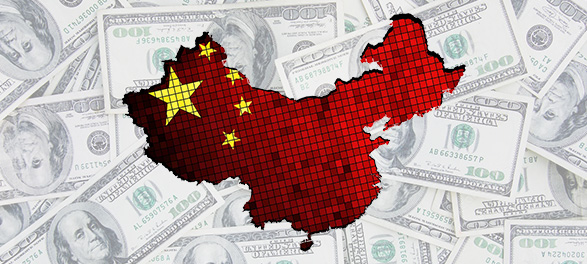
For a long while now, China has been sounding the rallying cry, doing all they can to encourage other nations to move away from the U.S. dollar as the world’s reserve currency. Initially, only anti-U.S. countries like Russia offered their support. But times they are a changing, and as the United States economy falls deeper into debt, more and more allies are starting to switch sides.
The Financial Times is now reporting that “France, Germany, and Italy have all agreed to follow Britain’s lead and join a China-led international development bank…delivering a blow to U.S. efforts to keep leading western countries out of the new institution.” Britain announced last week that it would join the $50 billion Asian Infrastructure Investment Bank (AIIB) and Australia has recently announced that it is reconsidering its initial opposition. The U.S. has been trying to dissuade its allies from joining the AIIB because of the potential threat it poses to the U.S. supported World Bank and ultimately to the Dollar itself.
Launched last year by Chinese President Xi Jinping, the AIIB has become a prominent point of contention between the U.S. and China in their struggle for global economic dominance. The Obama administration has been campaigning vigorously to keep western countries from joining the bank in order to encourage China to increase its lending standards.
Marking a recent trend of defiance to its ally the United States, Britain was the first western power to openly support the AIIB. According to The Financial Times, “the UK government claimed it had to move quickly because of the impending May 7 general election.” Britain has a lot to gain by establishing itself as a top destination for Chinese investment.
The U.S.’s main point of contention with the AIIB is its fear that China will not incorporate higher standards of lending. In a statement made this week, the U.S. Treasury said that “any new institution should incorporate the high standards that the international community has collectively built and new members should push for the adoption of these same high standards.”
Britain, on the other hand, thinks that the U.S. is just upset that they cannot participate in the new endeavor. With one UK official stating, “[The U.S.] couldn’t have got congressional approval to join the AIIB, even if it wanted to.”
Following the move by France, Germany, and Italy, South Korea has now announced that it would rethink its initial announcement that it would stay out of the AIIB. If South Korea were to join the AIIB, the U.S. would lose a major supporter in Asia. The U.S.’ other major Asian ally, Japan, will most likely never join the AIIB because of its worry that Chinese influence is spreading too quickly.
China has made it very clear over the past year that it is hoping to have the dollar dethroned as the world’s reserve currency as part of what it calls the “de-Americanization” of the world. By rallying the majority of world powers around the AIIB, China is now gaining support from some of the U.S.’ staunches allies, tipping the scales in the battle to keep the dollar the center of the global economy.

